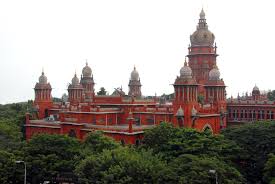If treated too gently, anyone might make careless comments and offer weak apologies to avoid punishment: Madras High Court refuses anticipatory bail in hate speech case.

The Madras High Court denied anticipatory bail in a hate speech case, stating that if such matters are treated too leniently, it could encourage reckless comments followed by apologies to avoid punishment. The Madurai Bench rejected the bail request from actress and social worker Kasthuri after an FIR was filed against her under various sections of the Bharatiya Nyaya Sanhita, 2023, and the Information Technology Act, 2000. She sought bail related to offensive remarks made about Telugu-speaking individuals. Justice N. Anand Venkatesh emphasized that the court must send a clear message: when someone makes hateful or derogatory statements and is prosecuted, simply apologizing should not be a way to escape the consequences. He noted that if such cases are treated lightly, it would lead to more reckless statements. He stressed the importance of taking responsibility for one’s words, as they can cause lasting harm, and a mere apology cannot undo that damage.
The case arose from a video where Kasthuri spoke at a Brahmin meeting. The prosecution claimed she made derogatory comments about women from a specific community during her speech. Kasthuri argued that her remarks were about the Brahmin community’s struggle for identity as ‘Tamizhian’ and insisted that her statements should be understood in context, rather than through selective excerpts that misrepresented her views.
After the speech, the actress learned that her comments upset some Telugu-speaking individuals. She then shared a message on Twitter to clarify her position and expressed her regret. The High Court reviewed the speech and noted that the Petitioner referred to Telugu-speaking people as those who historically served “wives and concubines living in a quarters reserved for them (Andhapuram) of a King.” The Bench highlighted that, although the statement did not specifically target women from that community, it cast all Telugu-speaking individuals in a negative light. The Court stated that “freedom of speech is a fundamental right that allows people to share their thoughts, beliefs, and opinions,” but emphasized that this freedom should not be misused to “spread hatred or create communal discord.”
The Court remarked that “our words can inspire change, promote understanding, or, on the other hand, lead to division and hostility.” The Bench indicated that the Petitioner’s remarks approached “hate speech,” especially considering their potential effects on Tamil and Telugu-speaking communities. The Court raised concerns about the lasting nature of social media content, pointing out that statements can be accessed indefinitely and “used at any time to fit the context.” It was noted that “speeches should not be made just to please the audience,” and public figures have a duty to ensure their words do not incite hatred. Justice Venkatesh concluded that “even though the complaint claims the speech targeted the women of a specific community,” it was evident upon review that “the entire Telugu-speaking population was demeaned.”
The Court noted that it is important to send a clear message that divisive speech will not be accepted. It stated that once words are spoken, they cannot be taken back, similar to an arrow that has been shot. The Court emphasized the need for public figures to be careful with their words, reminding them to use them wisely and thoughtfully. As a result, the High Court rejected the petition.
Cause Title: Kasthuri v. The State of Tamilnadu (Neutral Citation: 2024:MHC:3842)
Appearance:
Petitioner: Senior Advocate A.K. Sriram; Advocate M. Dinesh Hari Sudarsan
Respondent: Additional Advocate General R. Bhaskaran; Additional Public Prosecutor S. Ravi








